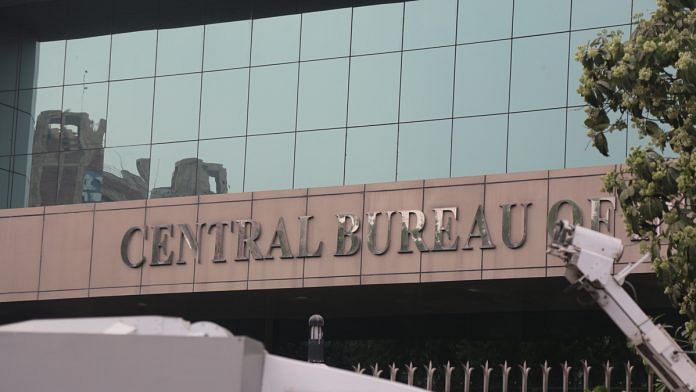New Delhi: The Department of Personnel and Training (DoPT) has strongly advised the Central Bureau of Investigation (CBI) against the practice of extending the tenure of officers in the investigating agency beyond their stipulated time, ThePrint has learnt.
This, DoPT has said, will prevent vested interests from developing, and would allow the second rung of officers to rise up the ranks, sources in the government have said.
In an order dated 28 June, accessed by ThePrint, the DoPT has said “it would be preferable instead of seeking such extensions, a second officer in command acquainted with such cases, may suitably be groomed to understand the intricacies of cases, so that the officer whose tenure has come to an end can be relieved on time”.
“The Hon’ble Court should be accordingly briefed regarding the capability of the well acquainted and groomed officer, second in command, who can take over such cases where the officers in command are relieved after completion of their tenure,” the order adds.
‘Extensions becoming the norm’
While the Delhi Special Police Establishment Act, 1946, under which the CBI is constituted, allows for the extension of the tenure of officers from a case-to-case basis, sources in the DoPT said that there is a twin problem being faced with extensions becoming the norm and not the exception.
“One, there is a question of conflict of interest,” said a senior official who requested anonymity. “Given the sensitivity of cases handled by the CBI, it is important that officers work within their stipulated tenure of three or five years, or whatever the case may be.”
The official added that the rules ensure objectivity and neutrality. “While passing on the reins of a complex case towards the end has its disadvantages, it is also important that rules that are meant to ensure objectivity and neutrality in cases are followed,” the official said. “In case of exceptions, of course there is the option to extend tenures.”
In addition, often states send IPS officers for central deputation for a stipulated time period, the official said.
“Given that there is a shortage of IPS officers not just at the central but also at the state level, states take an exception to officers not being relieved on time and then become less inclined to offer their officers to the Centre,” the official said.
“So to maintain this balance as well, it is important that officers serve for a set period in the Centre, and are then relieved.”
(Edited by Arun Prashanth)
Also read: Centre vs states, rules vs convention — who really controls IAS officers



